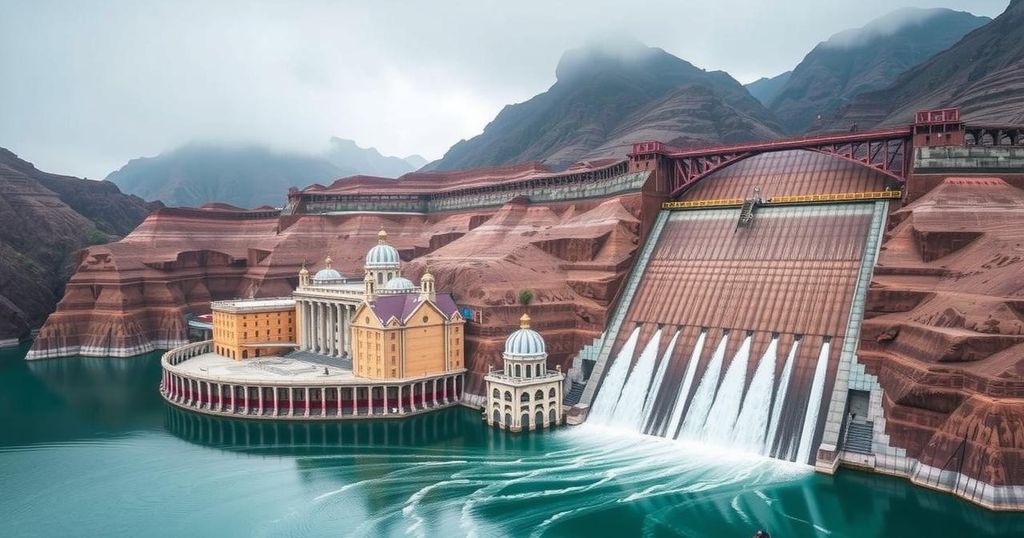Impact of China’s Largest Dam on India: Risks and Geopolitical Tensions
China’s construction of its largest dam on the Brahmaputra River presents considerable risks to India, including potential water scarcity and flood threats. The lack of transparency from China raises concerns about India’s reliance on its neighbor for water, increasing geopolitical tensions. India is countering by developing its own dam and engaging in strategic discussions with China. This situation underscores the critical importance of water security in the India-China relationship.
China’s ambitious plan to construct its largest dam on the Brahmaputra River poses significant risks for India, raising alarm over potential economic, environmental, and geopolitical consequences. Experts fear that the dam could instigate flash floods and create water scarcity in India, undermining the country’s water security. Critics point to China’s opacity regarding dam operations, which amplifies concerns about India’s reliance on its neighbor for vital water resources, heightening the geopolitical stakes.
The dam’s construction places China in a position of upper riparian control, where it can dictate the flow of water downstream, thus intensifying India’s apprehension regarding water availability. Furthermore, the geopolitical tension between the two nations may escalate, leading to fears of imminent “water wars,” as highlighted by Genevieve Donnellon-May, an adviser on geopolitical and global strategy. China’s capability to modulate water flow could result in deliberate flooding during moments of conflict, worsening regional instability.
In response to these challenges, India is proactively constructing its own dam on the Brahmaputra in Arunachal Pradesh to secure its water interests. High-level discussions regarding data sharing were also held between National Security Advisor Ajit Doval and Chinese Foreign Minister Wang Yi during their Special Representatives meeting, reflecting India’s commitment to addressing these pressing issues head-on. The outcome of these actions will be pivotal in determining the course of India-China relations moving forward.
The construction of the dam by China on the Brahmaputra River has raised significant concerns in India due to its potential to affect water availability and regional stability. The Brahmaputra, which originates in Tibet, is crucial for both India and Bangladesh. Given the geopolitical context, the dam symbolizes China’s growing influence over water resources in the region, an aspect that New Delhi views as a strategic challenge. This dam project is not only an infrastructure endeavor but a focal point in the broader narrative of India-China relations, highlighting issues of transparency, cooperation, and competition over shared water resources.
In conclusion, China’s largest dam on the Brahmaputra serves as a potential flashpoint in India-China relations, exacerbating tensions linked to water security. India’s apprehensions regarding dependence on China for water supplies and the implications of upper riparian control underscore the critical nature of this geopolitical issue. As both nations navigate this complexity, the development and management of water resources will remain central to regional stability and cooperation.
Original Source: www.ndtv.com








Post Comment